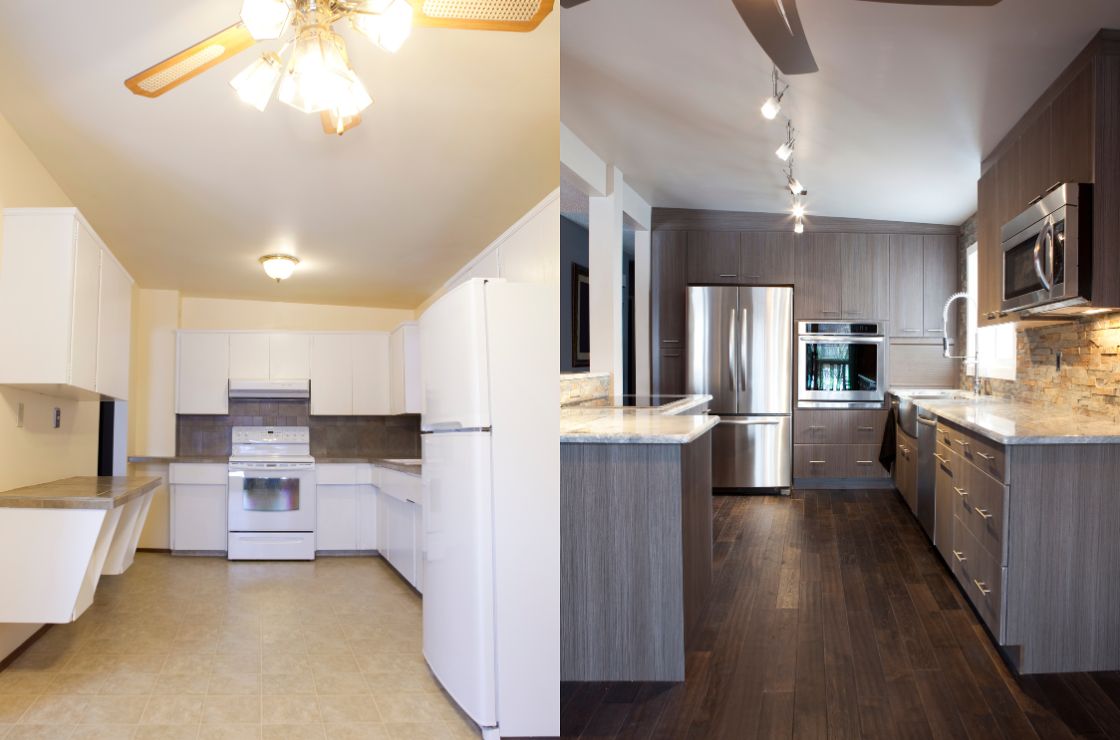When people get comfortable in their homes, they sometimes begin to ignore all of the ways those homes could be better. Perhaps they once had lofty aspirations for home renovations, but now, they’re happy enough with what they already have. When they start considering selling the home and starting anew, however, those problems become more obvious again.
Renovating a home isn’t necessary in a competitive market, but what if it could increase your home’s value and get you more money from the sale? What if renovating could also make you fall back in love with your home, so you don’t want to sell at all?
We’re here to talk about whether or not renovations can increase the value of your home. Read on for a full breakdown.
Why Renovate?
So why renovate at all? It can be a huge hassle even under the best of conditions, so is it really worth the trouble? In many cases, yes!
Home renovation is a significant investment that can potentially increase your home’s value, enhance its aesthetic appeal, and improve functionality for either you or the future owners. Homeowners renovate for various reasons, including to enhance livability and comfort, increase property value, address maintenance and repair issues, and adapt to changing lifestyle needs.
Whether you’re considering putting the home up for sale soon or you just want to refresh your current living space to have it suit your household better, a renovation can be worthwhile. Not every renovation will add monetary value (but many will, don’t worry, we’ll go into it), but they can all add experiential value to your life if you choose well.
Renovations That Add Value
Some renovations consistently provide a high return on investment (ROI). If you’re only renovating to attract more buyers and put a higher price tag on your home, these are the ones you’ll want to focus on in most cases.
Kitchen upgrades, such as modern appliances, countertops, and cabinetry, can recoup over 100% of their costs in some cases. Bathroom remodels, including updated fixtures, tile, and vanities, can also be more than worth the cost of the renovation.
Roof replacements are spendy, but they ensure safety and improve curb appeal, and in some cases, they’re necessary in order to sell the home at all. They can drastically increase the price of a home.
Hardwood flooring installations or refinishing can net a large ROI (especially if the home previously had outdated carpet, which is often undesirable in the current housing market).
If you’re only renovating to sell, consider these options first.
Moderate Return Renovations
Other projects offer moderate ROI. Basement finishing can recoup a large percentage of costs, while attic conversions into living spaces will yield slightly less. If the basement was previously unusable and it’s now a viable living space, like a private apartment, it will give you a better ROI as it turns into an investment opportunity.
Window replacements with energy-efficient options can recover up to a large percentage of costs in vintage homes. Old windows tend to be undesirable due to their lack of insulation, and they’re expensive to replace. Buyers may pay a premium for those new windows.
Patio and deck additions can recoup costs as well. These renovations may not provide the highest returns but still enhance your home’s value and livability. They’re often “extra” things that the right buyers will pay top dollar for.
Low Return Renovations
Some projects may not provide significant ROI. This doesn’t mean you shouldn’t do them, but you should do them for yourself rather than for potential buyers. They increase personal value instead of overall home value.
Pool installations rarely recoup their costs, with an average ROI of under 50%. Home office conversions may recover only a small percentage of costs now that WFH has scaled down, and high-end upgrades with luxury materials and finishes may not appeal to potential buyers unless they’re already using them. It’s often best to leave luxury upgrades to the new homeowners.
Factors Influencing ROI
Several factors impact renovation ROI. Location plays a substantial role, as renovations in desirable areas tend to yield higher returns. You can renovate a home in a “bad neighborhood,” but it will still be in that bad neighborhood despite its shiny new features.
Quality of workmanship also matters, as well-executed projects increase value. Choosing materials and finishes that appeal to potential buyers is a must if you’re only focusing on home value. Finally, market conditions affect ROI, with renovating during a buyer’s market potentially reducing returns. However, you can still increase the price of the home, just to a lesser extent.
Tips for Maximizing ROI
Is there any way to ensure a higher ROI? Nothing is certain, but there are a few things you can do to help.
To ensure renovations increase your home’s value, consult with professionals, such as contractors, designers, and real estate agents. Make sure you work with a home remodeling professional rather than trying to do a DIY project. After all, better workmanship yields better results and higher returns.
Research local market trends and buyer preferences to inform your decisions. Set realistic budgets and timelines and focus on curb appeal and first impressions over flashy and unnecessary upgrades. Choose timeless designs and materials to appeal to as many potential buyers as possible.
Are You Ready to Renovate?
Home renovation can significantly increase your home’s value, but you need to play your card right. By focusing on high-ROI projects, considering local market conditions, and focusing on quality workmanship, you can maximize your investment and enhance your home’s overall appeal and value.
If you’re ready for a remodel, LA Carpet is here to help. We offer more than just carpets. We’re your local experts on bath and kitchen remodels, as well as full flooring installations. We’d love to help you upgrade your home.

